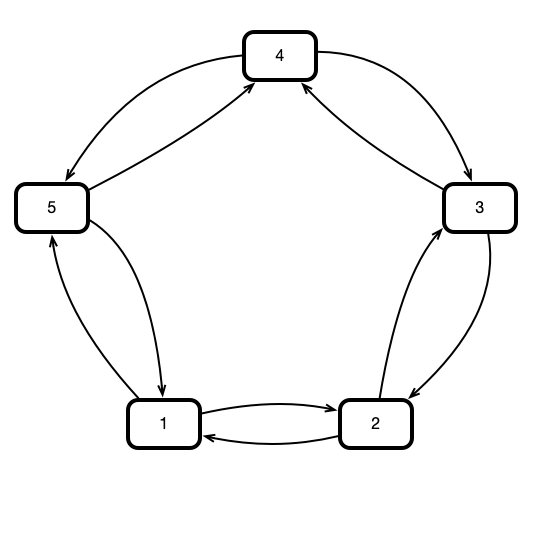Lecture 18: Sequential Consistency
COSC 273: Parallel and Distributed Computing
Spring 2023
Announcements
- Lab 03 Due
FridayMONDAY!!- Mandelbrot computations using
Vectoroperations -
Make sure your machine supports
Vectorops today:> javac --add-modules jdk.incubator.vector SomeFile.java > java --add-modules jdk.incubator.vector SomeFileon HPC cluster, first run
> module load amh-java/19.0.1
- Mandelbrot computations using
Last Time
Concurrent Objects!
- concurrent linked lists:
- lock the whole list to
insert - lock affected nodes to
insert
- lock the whole list to
Option 1 is easy to reason about, but offers no benefit from parallelism
Option 2 may offer some performance benefit from parallelism, but reasoning about correctness is subtle
A Subtle Issue

Concurrent Queues
Question
What is a queue?
From Data Structures
An abstract data type (ADT) specifies:
- allowed operations
- effects of operations
- return values
- updates to internal state of object
Example. Queue ADT?
What Does an ADT Give Us?
For any sequence of operations $op_1, op_2, op_3, \ldots, op_n$ an ADT specifies the results of these operations.
- this is a sequential specification of an object
Question. Why is a sequential specification insufficient for concurrent objects?
The Challenges of Concurrency
What if two or more operations are performed concurrently?
- What is the “correct” behavior?
- How can an implementation guarantee that the correct behavior occurs?
- in general, each operation consists of several elemenatry steps
- must guarantee correct behavior for all interleavings of elementary operations
Concurrent Queue Example
Thread 1:
enq(x)deq()
Thread 2:
enq(y)
Question. What are “acceptable” results of deq()?
Concurrent Queue Timelines

- call to
deq()could return eitherxory- both reasonable!
- any other response seems “un-queue-ish”
Sequential Consistency
A Sensible Feature
Consider all operations performed by all threads
- Each operation has some effect
Behavior of execution should be consistent with some sequential execution of those method calls.
Example.
- Thread 1 calls
enq(1), enq(2), deq(), enq(3) - Thread 2 calls
enq(4) deq() enq(5) deq()
Is This Enough?
Behavior of execution should be consistent with some sequential execution of the method calls.
- Thread 1 calls
enq(1), enq(2), deq(), enq(3) - Thread 2 calls
enq(4) deq() enq(5) deq()
Another Sensible Feature
Method calls should appear to take effect in program order
- if a single thread calls
op1()beforeop2(), thenop1()should take effect beforeop2()in sequential execution.
Sequential Consistency
An execution is sequentially consistent if all method calls can be ordered such that:
- they are consistent with program order
- they meet object’s sequential specification
An implementation of an object is sequentially consistent if
- it guarantees every execution is sequentially consistent
Sequentially Consistent Outcomes?

Example: A Sequentially Consistent Queue
An Array-Based Queue
public class LockedQueue<T> {
int head, tail;
T[] contents;
Lock lock;
}
Enqueuing
public void enq(T x) {
lock.lock();
try {
items[tail] = x;
tail++;
} finally {
lock.unlock();
}
}
Dequeueing
public T deq() {
lock.lock();
try {
T x = items[head];
head++;
return x;
} finally {
lock.unlock();
}
}
What Happens?

What Happens with Locks?

Equivalent Sequential Execution

Why is Queue Sequentially Consistent?
Locks!
-
mutual exclusion property of the
Lockensures thatenq/deqoperations are not concurrent -
calls to
enq/deqcan be ordered according to “wall clock” time of execution of critical sections

Questions
- Can we achieve sequential consistency without resorting to locks?
- again, this technique is essentially sequential
- Is sequential consistency enough?
What are “Acceptable” Outcomes?

Next Time
Linearizability: A stronger notion of correctness for concurrent objects
- considers “wall clock” time in addition ot program order
